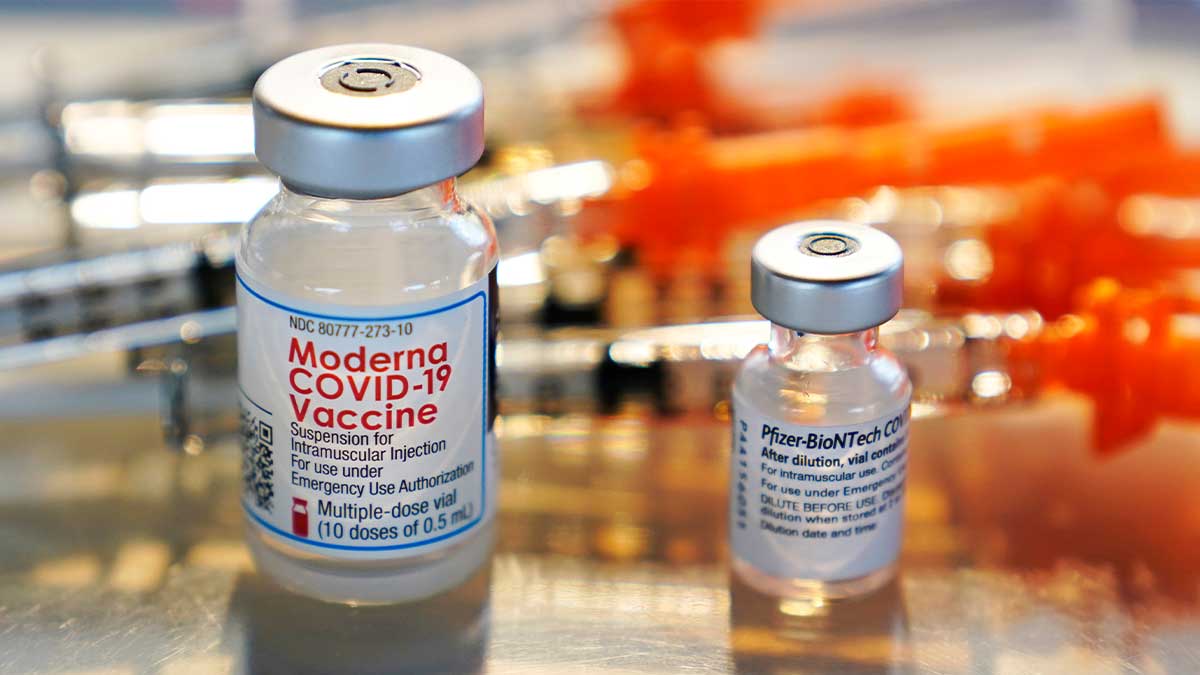The mRNA vaccine from Pfizer (PFE.N) and BioNTech (22UAy.DE) are reported to be less effective than Moderna vaccine against the Delta variant of the coronavirus.
On Sunday, two reports were posted on medRxiv ahead of peer review according to which more than 50,000 patients in the Mayo Clinic Health System, researchers found the effectiveness of Moderna’s vaccine against infection had dropped to 76% in July – when the Delta variant was predominant – from 86% in early 2021.
According to Dr. Venky Soundararajan of Massachusetts data analytics company nference, who led the Mayo study, over the same period, the effectiveness of the Pfizer/BioNTech vaccine had fallen to 42% from 76%.
While both vaccines remain effective at preventing COVID hospitalization, a Moderna booster shot may be necessary soon for anyone who got the Pfizer or Moderna vaccines earlier this year.
Read more: Moderna mRNA, China’s ZF2001 vaccine effective against Delta variant
In a separate study, elderly nursing home residents in Ontario produced stronger immune responses especially to worrisome variants after the Moderna vaccine than after the Pfizer/BioNTech vaccine.
The elderly may need higher vaccine doses, boosters, and other preventative measures, said Anne-Claude Gingras of the Lunenfeld-Tanenbaum Research Institute in Toronto, who led the Canadian study.
When asked to comment on both research reports, a Pfizer spokesperson said, “We continue to believe… a third dose booster may be needed within 6 to 12 months after full vaccination to maintain the highest levels of protection.”
Breakthrough COVID-19 more likely months after vaccination
People who received their second dose of the Pfizer/BioNTech vaccine five or more months ago are more likely to test positive for COVID-19 than people who were fully vaccinated less than five months ago, new data suggest.
At all ages, the odds of testing positive were higher when the last vaccine dose was received at least 146 days earlier, the research team reported.





















